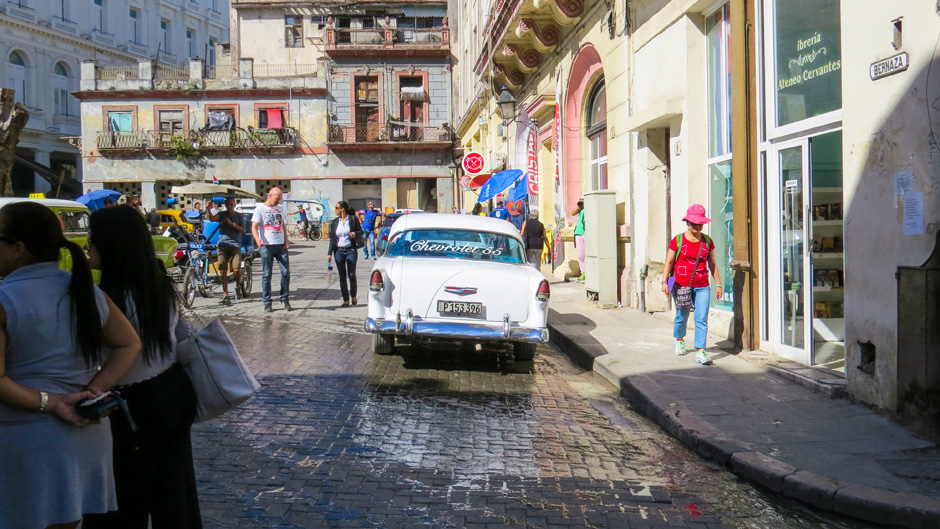What were Cubans on the island protesting on July 11, 2021?
Was the image of former Cuban leader Fidel Castro romanticized by Latin Americans?
What is the meaning of community?
These were some of the themes discussed in the University of Miami panel discussion “Stories from Cuba” that was held virtually on Wednesday evening. The event was part of the Office of Multicultural Student Affairs “Brave Spaces” series, which provides continuous virtual spaces for student support, dialogue, and community building.
Sponsored by the student organization Federacion de Estudiantes Cubanos (FEC), panelists included Michael Bustamante, associate professor of history and Emilio Bacardi Moreau Chair in Cuban and Cuban American Studies; Stefanie M. Rodriguez, community relations and events assistant for the University of Miami Otto G. Richter Library; and Sidney Stropes, president of FEC.
The following are highlights from each of the panelists.
Bustamante:
“Cuba is often referred to as a place ‘frozen in time.’ You get references to old cars, ruins, etc. . . .You get a concept of a place that is seen by outsiders as a historical theme park, a place stuck in the past. Cuba is really a place of 11 million people, and these are people who have as diverse opinions about their ever-evolving reality and the country’s reality as you would expect in any place.
“The protests were the results of a confluence of factors. Cuba is in the midst of its worst economic crisis in 30 years. The reasons are multiple: mismanagement of the Cuban economy, changes in international policy, and the flip-flops in what U.S. policy toward Cuba has been from the Obama administration to the Trump administration. Sanctions imposed by the U.S. have intensified.
“This summer, the COVID-19 Delta variant had devastating effects. The Cuban health system was under stress, and there were no beds in hospitals. And there were pent up political grievances. In the protests, you see people shouting everything from, ‘we want medicine,’ to ‘we want food,’ to ‘we want freedom.’
“It stands to reason, that in the midst of an economic crisis, it would compel people to evaluate what they think about the government.”
Stropes:
“Stropes may not be the most Cuban sounding name. I was born in Australia, and we were the only Cubans in the entire island.
“I moved around a lot as I was growing up. In my entire time growing up, I never met another Cuban student in a classroom. That was isolating because l knew I had a story and the story I heard in history class was not the same as I heard at home from my relatives. There was a huge disconnect there. Coming to UM was a great opportunity to reconnect with my Cuban roots. There is something very special about connecting with people who understand where you are coming from. Having spaces like this and the FEC office and being with people that you don’t have to explain yourself to is truly special.
“When the protests took place in Cuba, I saw a lot of raw emotions from our students and there was a need to get together and have these conversations. As Cuban Americans, we have the responsibility to educate our classmates—some have no idea where Cuba is. We are in a unique spot where we can make sure that people on our campus get to know that Cuba is more than fancy cars, dominoes, and rum.”
Rodriguez:
“I straddle two worlds: my immediate past job was working with the Cuban Heritage Collection (of the UM Libraries) and that is where my scholarly intellect comes from in regard to Cuba. I grew up in Miami and my family came from Cuba in the Freedom Flights. I have the community aspect and then the scholarly perspective of working in an archive where I learned a lot of history that I frankly did not know.
“Thinking of these protests in Cuba, you have to straddle your family’s perspective with those you have from history—what you learn from academics and historical records versus what you get from conversations with your family. Conversations with your family are very emotional. The ways the diaspora reacted was similar to how my family reacted. It is easy to react with that ‘trauma’ response because you have family there. But this protest was different in a myriad of ways.”
Following remarks from the panelists, there was additional discussion that included the attendees of the “Brave Spaces” event. And many shared their experiences as Cubans in Miami.

